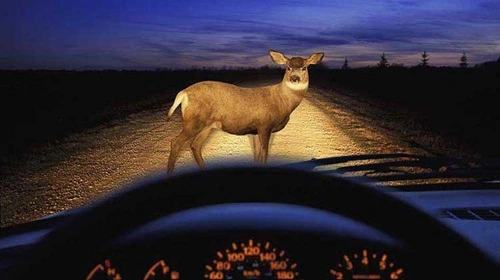No, it is not illegal to hit a deer accidentally with your vehicle in the United States, but failing to report the incident in certain circumstances may result in legal consequences. Deer-vehicle collisions are common, especially in rural and suburban areas, and laws governing these incidents vary by state. However, intentional harm to a deer with a vehicle is illegal and can lead to criminal charges.
Understanding Deer-Vehicle Collision Laws
Deer-vehicle collisions are usually treated as accidents rather than intentional acts. The key legal considerations revolve around reporting requirements, the disposition of the deer, and whether the collision was accidental or deliberate.
1. Reporting Requirements for Hitting a Deer
State Laws on Reporting Accidents
In most states, you are required to report an accident involving a deer if it results in significant property damage or injury.
- Example: In Pennsylvania, collisions causing property damage over $1,000 must be reported to law enforcement under state accident laws.
- Example: In Michigan, reporting is mandatory if the collision causes damage requiring repair or blocks a public roadway.
Failure to report can result in fines or other penalties.
2. Rules for Keeping the Deer (Salvage Laws)
Many states allow drivers to keep a deer that has been struck, but specific rules apply:
- Salvage Permits: Some states require drivers to obtain a salvage permit or tag to legally possess the deer carcass. For example:
- Pennsylvania: Drivers must report the collision to the Game Commission and obtain a permit.
- Ohio: A wildlife officer must issue a tag for the deer.
- Restrictions on Use: In most states, deer taken under salvage laws cannot be sold or used for commercial purposes.
3. Intentional Harm to Deer
Deliberately hitting a deer with your vehicle is illegal and constitutes animal cruelty or wildlife harassment under state laws.
- Example: In New York, intentionally striking a deer can result in misdemeanor charges, fines, and potential jail time under animal cruelty statutes.
- Example: In Colorado, harming a deer intentionally is a violation of state wildlife laws and can lead to significant penalties.
4. Legal Consequences of Hitting a Deer
If the Collision Is Accidental
- Insurance Coverage: Most auto insurance policies cover deer-related accidents under comprehensive coverage, but not collision coverage.
- Reporting to Law Enforcement: Failing to report a required accident can lead to fines, penalties, or even license suspension in some states.
If the Collision Is Intentional
- Criminal Charges: Intentional harm to a deer can result in charges ranging from misdemeanors to felonies, depending on the state and circumstances.
- Fines and Restitution: Fines for intentional harm to wildlife can range from hundreds to thousands of dollars. Some states also require restitution for the value of the animal.
5. Steps to Take After Hitting a Deer
- Ensure Safety: Pull over to a safe location and turn on your hazard lights. Do not approach the deer if it is alive, as it may react unpredictably.
- Report the Incident: Notify local law enforcement if required by state law or if the accident causes significant damage or blocks traffic.
- Contact Your Insurance Provider: File a claim for vehicle damage if your insurance policy covers animal-related accidents.
- Inquire About Salvage Laws: If you want to keep the deer, contact your state wildlife agency to obtain a salvage permit, if required.
Recent Legal Updates (2023-2024)
1. Changes to Salvage Permit Processes
States like Pennsylvania and Virginia have streamlined their salvage permit application processes, allowing drivers to apply online or via mobile apps for quicker approvals.
2. Increased Public Awareness Campaigns
Organizations such as State Farm and state wildlife agencies have launched campaigns to educate drivers on avoiding deer collisions and the legal steps to take afterward.
3. Enforcement Against Wildlife Harassment
States like Montana and Colorado have increased penalties for intentional harm to wildlife, including stricter fines and longer hunting license suspensions for offenders.
FAQs About Hitting a Deer
Q1. Is it illegal to hit a deer with your car?
Ans: No, accidental collisions with deer are not illegal. However, deliberately hitting a deer is illegal and considered animal cruelty or wildlife harassment.
Q2. Do I have to report hitting a deer?
Ans: In most states, you must report the incident if it causes significant property damage, blocks a public roadway, or if you want to keep the deer.
Q3. Can I keep a deer I hit with my car?
Ans: Yes, in many states, you can keep the deer after obtaining a salvage permit or following state-specific reporting procedures.
Q4. Will insurance cover damage caused by hitting a deer?
Ans: Insurance coverage depends on your policy. Comprehensive coverage typically includes animal-related accidents, while collision coverage does not.
Q5. What should I do if I hit a deer?
Ans: Ensure safety, report the accident if required, contact your insurance provider, and check local laws about salvage or wildlife handling.

